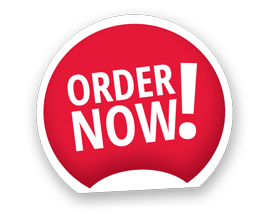Your final paragraph should start with a smooth transition from the essay’s body. This article will provide a step-by-step guide on how to end an essay. The first sentence of your concluding paragraph should contain transitional phrases to alert the reader that you are nearing the end of your essay. Different transition words can have varying effects, so choose a transition word or phrase that conveys that you are concluding your essay. Examples of frequent transitional phrases and words in the ending include:
- In conclusion
- To conclude
- Finally
- To sum up
- As previously stated.
Once you have indicated that you are nearing the conclusion of your essay, you might restate its main points. Depending on the length of your essay, this may be accomplished in a single sentence or several. Be concise and clear; you should be able to summarize each significant point in a short phrase that avoids restating each detail and piece of evidence. In addition, list the point to remind your audience what they have just read.
How to End an Essay: A Step-By-Step Guide
Restate Your Main Points
In conclusion, if you are writing an argumentative essay, you should explicitly repeat your major point to make one last appeal to your audience. This restatement should convince the reader if you have presented sufficient proof.
Call to Action
A call to action is acceptable in the final sentence of several expository and argumentative essays. For instance, if you’re writing an informative essay about the sea creatures that live in the deepest parts of the ocean, you might conclude with the following: “It’s clear that today’s scientists should continue to observe and document these mysterious creatures, so that we can learn more about the life at the bottom of the ocean.” A call to action such as this will leave your reader feeling motivated and informed.
What to Avoid
When writing an effective ending paragraph, you should keep things simple. Utilize a transitional word or phrase, restate your main ideas and arguments, and conclude with a possible call to action. Please avoid the following frequent errors:
- New information: Your conclusion should be free of any new information. Rephrase and briefly summarize the key concepts.
- Personal opinion: Avoid concluding your essay with a sudden “I believe…” or “I feel…” unless you are writing an opinion article that contains numerous “I” assertions. If you have yet to include your personal perspective throughout the essay, you should also not include it in the conclusion.
- Extensive detail: When restating your key points, there is no need to repeat the specifics that comprise your description or evidence. Details should be included in the body paragraphs. The conclusion is merely a recap and a potential call to action or subsequent measures.
Read also: Best way to end an essay.
How to End an Essay Paragraph for Various Types of Essays
The style, tone, and length of your closing paragraph will vary depending on the type of academic essay you are writing. This section of our guide will explain how to conclude various types of essays.
How to End an Essay: Argumentative Essay
The sole purpose of persuasive or argumentative essays is to persuade readers of anything (an idea, position, or viewpoint) by appealing to arguments, facts, logic, and emotions. The conclusion of such an essay must also be convincing. A useful technique is illustrating a real-world incident that demonstrates your position or urges readers to act.
Here are a few additional guidelines for writing the perfect ending to an argumentative essay:
- carefully read the entire essay
- Re-emphasize your ideas
- Discuss any ramifications.
- Do not fear appealing to the reader’s emotions.
How to End an Essay: Compare and Contrast Essay
A compare and contrast essay is intended to highlight the differences or similarities between two or more items, persons, phenomena, etc. Consequently, a logical conclusion should emphasize how the reviewed objects are distinct or comparable. In a nutshell, the conclusion of such a paper should summarize the important common and distinguishing characteristics covered in the essay’s body and provide food for thought for the reader.
How to End an Essay: Descriptive Essay
The purpose of a descriptive essay is to demonstrate your originality and writing skills by using words to construct a vivid picture. This is one of the most creative types of essays since you must present, not tell, the story. This type of essay requires the use of several vivid details. Similarly, the conclusion of such a paper should employ descriptive imagery and simultaneously summarize the important points.
An excellent way to conclude a descriptive essay is to begin with, a concise explanation of why you wrote it. You should then consider how the issue impacts you. In the middle of the conclusion, you should discuss the story’s most meaningful events to guide the reader to a reasonable conclusion. In this instance, the “clincher” should be the last statement that provokes thought and leaves a positive and lasting effect on the audience. Do not introduce the reader to the essay and leave them with fading memories.
How to End an Essay about Yourself
If you are writing an essay about yourself, you must include a personal narrative. Typically, such essays focus on the author’s experiences; therefore, the end should provide a sense of narrative closure. A solid method is to conclude your narrative with a logical conclusion and the lessons you have learned while relating it to the introductory paragraph and recalling crucial events.
How to End an Essay: Informative Essay
In contrast to other forms of papers, informative and expository essays include much information and data. In this situation, “Synthesize, don’t summarize” is the ideal way to conclude your paper. Simply put, you should approach your conclusion from the “So what?” viewpoint by emphasizing the significance of the offered information rather than by recounting all of the important facts.
How to End an Essay: Narrative Essay
In essence, a narrative essay is founded on simple storytelling. The goal of this essay is to describe in depth a particular story. Therefore, the end of such a paper should conclude the narrative and avoid abrupt cliffhangers. It is important to mention the story’s important takeaways and lessons learned.
Check also: how to end an essay for a scholarship.
How to Write a Conclusion for a Lab Report
A lab report, unlike an essay, is based on an experiment. This type of paper explains the progression of a specific experiment undertaken by a student, and its conclusion should reflect the experiment’s results.
As you consider how to end an essay conclusion for a laboratory report, keep the following in mind:
- State the objectives of your study.
- Describe the procedures you followed
- Include the outcomes of the experiment and analyze the final data.
- Conclude your conclusion with a clear declaration as to whether or not the experiment was successful (Did you get the anticipated results?)
Do You Need Professional Essay Writing Help?
At nursingwritingservices.net, we provide an academic editing and proofreading service. We can ensure that the totality of your work is not only devoid of spelling and grammatical errors but that we also check syntax and sentence structure and can provide relevant improvements and ideas. We will also verify the accuracy and consistency of your tables and footnotes with your bibliography.
To acquire an instant quote for us to write your nursing essay visit the ‘Instant Quote’ page and upload your document; our Quote Generator will then generate an instant quote based on the word count of your document.
More Posts: How to Write an Essay on Social Media









